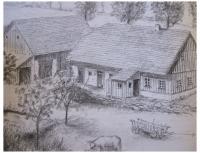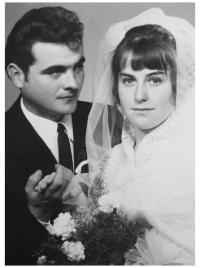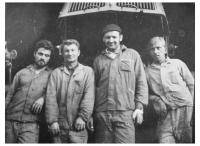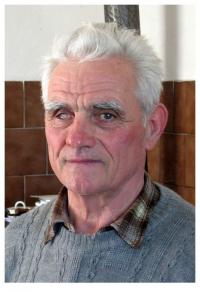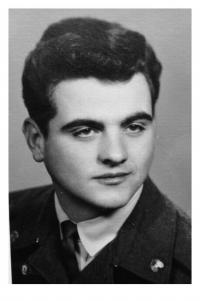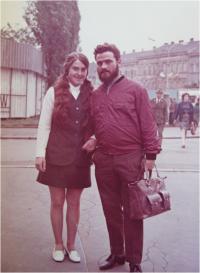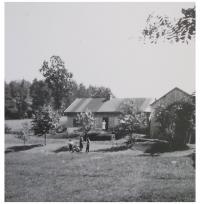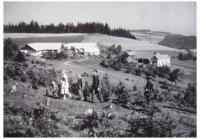I know of a farmer who didn’t bow to the pressure and didn’t join the Unified Agricultural Cooperative. He was then however ordered to deliver more than the entire cooperative in Petrovice.

Stáhnout obrázek
Richard Hofmann was born November 4, 1944 as one of the five children of a young farmer from Spáleniště near Petrovice in the Šumava Mountains. Germans forced his family to leave their house during the war, and after the war they were ordered to move out by the communists. In compensation they received a farm left which belonged to a killed German, which was later confiscated by the communists. Mr. Hofmann received the farm back only after the restitution in November 1989, and he recalls the process to be absurd and nasty. After the war the family witnessed the forced expulsion of their German neighbours, the collectivization of farms in the countryside, destruction of farms and villages, and the obligatory agricultural deliveries. Richard did his military service in the exemplary anti-aircraft regiment in Most, which had been decorated with the Order of the Red Banner, then as a driver for the State Farms, and later for the Army Forest Administration. He also worked as a bulldozer driver, destroying the last remains of the depopulated and abandoned villages. He suffered a work injury which led to the loss of his eye, and subsequently he got a job as a gate-keeper in the Solo factory in Dlouhá Ves. However, as a result of drinking water from the well which was contaminated by chemicals used in the factory, he began to suffer from esophageal varixices and liver cirrhosis. He eventually received a disability pension. When the farm in Kochánov was given back to him in restitution, he returned there and began farming on a limited scale. He now spends his days there happily with his wife.
